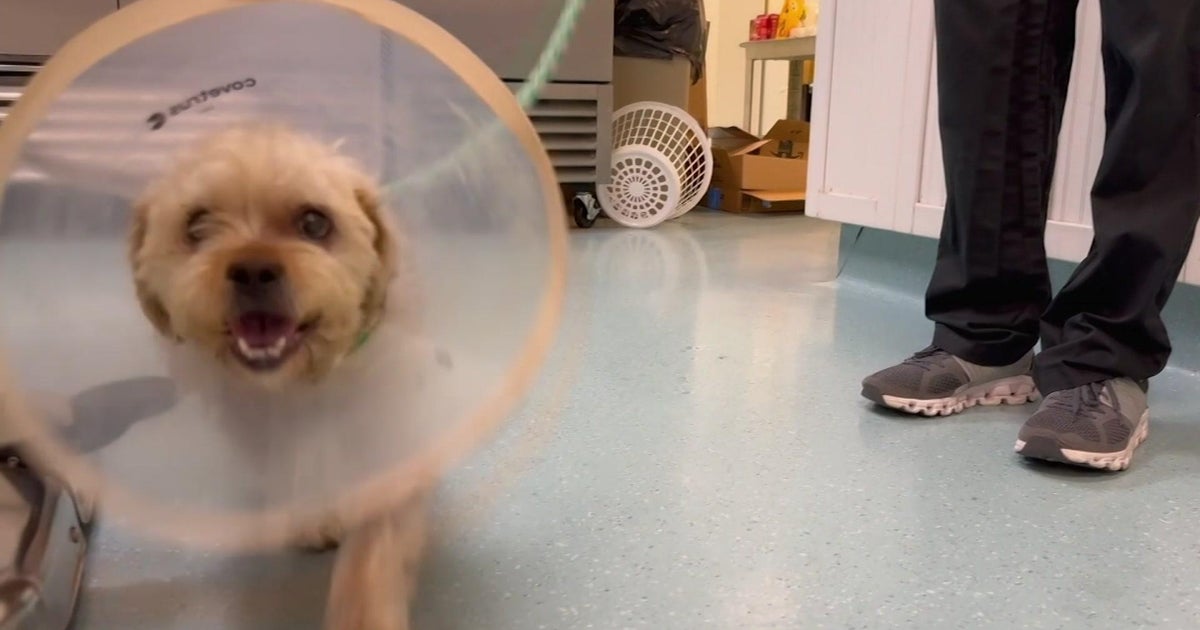Hurricane Damage Inspectors Explain Storm Preps That Work & Some That Don't
Follow CBSMIAMI.COM: Facebook | Twitter
FLORIDA KEYS (CBSMiami) – As we prepare for this hurricane season, there are lessons we can learn from last year.
CBS4's David Sutta asked a team of hurricane damage inspectors what storm preps worked and what did not.
What we found was surprising, especially for those of you who have impact resistant windows.
John Micali started inspecting hurricane damaged homes and repairs after Hurricane Andrew.
He built his company, Allied Building Inspection Services, into a bustling company. There were quite busy during our 2004-05 seasons.
Then came a 10-year lull in storm activity but the 2017 season broke that trend.
His team was quite busy the past year. Since Irma, they have done more than 400 inspections and learned quite a bit.
"You know it's interesting. It's been over 10 years since we have had a major storm and what we found, the upgrades we made to the building code and the changes in the way we build has really really help," Micali said.
That is the good news. For those who did have damage, Micali says much of it was preventable.
We asked him to show us what he meant by that.
"If a tree can touch your roof it's bad. So I would say for preparedness purposes not to overstate the obvious, but you really need to look at your trees and even if you have a modern hurricane hardened home, a tree will do a lot of damage. If a tree can touch a roof, I've literally seen where a tree will rub through a shingle roof, just constantly rubbing," he explained.
Micali recommends you trim the trees now. It will not only help keep limbs off your roof, the tree may be able to withstand the storm.
In South Florida, you will see three kinds of roofs.
Metal roofs, which are the strongest, built to withstand the strongest of winds.
Then you will find shingle roofs, which are good.
You'll also see tile roofs, which in high winds can break apart into pieces.
Micali points to homes in the Cutler Cay community. Tile roofs line the area.
"This particular home suffered over 200 damaged tiles as result of tiles loosing from this roof and from others," Micali said.
The fix for preventing broken tiles? Get your roof inspected.
Most roofers will do this free in hopes if you do need a repair you will hire them.
"What has happened is the mortar dries out with time with heating and cooling every day. Moreover, it has lost its adhesiveness. So normally a roof that can withstand 100 mph, 80 mph, [instead] fail at 60," Micali said.
Another item he and his inspectors saw post-Irma was water. He opens a garage and shows us the side of the house.
"There is a vent. 100 mph wind-driven horizontally came through this garage for hours, flooded this garage. Damaged stuff. People put stuff in the garage, they think put it in the garage it's all safe there. The best we could tell there was an inch and half of water in this garage for hours." he said.
John recommends stuffing towels into vents, even if they are soaked it will keep water from flowing in.
He recommends doing the same for your windows. Even impact windows cannot keep the water out.
"What would happen is the water would enter the track, driven by 100 mph wind, it has a drain but it can only drain out so fast or maybe there is debris in there. Water will inundate the track and pour into the home," he said.
And about those impact windows with high price tags; Irma showed us they may not be worth it.
Micali explained, "After the storm, they came back and they went to clean the windows to get life back to normal and they couldn't clean the windows. Further analysis they found that the windows had actually been sandblasted by the debris. And thousand of little scratches and nicks were in these windows and the windows have a permanent fuzz to them. So these people put in these $40-$50 thousand dollar impact windows and now they have these damaged windows."
We asked if there was a way to salvage the windows.
"Not that we know of. You really can't polish the glass," Micali replied.
Lastly, John recommends checking the seals on all your doors, windows, and sliding door tracks.
A majority of their post Irma inspections dealt with situations where water got into homes and wreaked havoc.
"Water, in short order, allows mold to grow. Mold needs two things. It needs moisture and food. The food is always here. You probably couldn't make a better food than drywall for mold," Micali said.
One final tip to note is hurricane shutters.
Not only should you know how to install your panels but make sure you have all the hardware now.
When a storm is approaching, you will have a hard time finding the right bolts and nuts needed to do that job.
Hopefully, you won't need to use them but if you do you'll want to have them ready to go.



